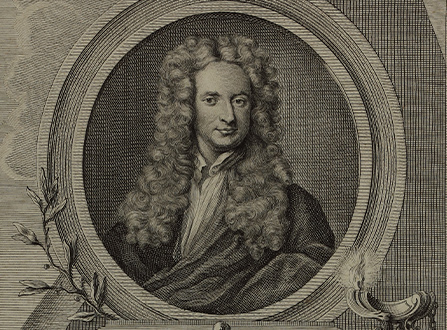No, here you misunderstand Arius – he believed and taught that the Son – begotten of the Father – was a divine being, but not co-eternal with the Father, nor of the same (eternal) substance or (eternal) essence, but a unique divine substance/essence called into existence before all time and all creation, and through whom and by whom the world was made, the Son being the Logos of the Father.No .. not G-d .. the SON of G-d.
According to Alexander (bishop of Alexandria), Arius has assigned the Logos a place among created beings (which Arius explicitly denies); from that, he draws the conclusion that the Son/Logos of Arius is merely a man ... This view is still to be found in the realm of popular scholarship and most recently led to the idea that 'Arianism', as a theology without a doctrine of the Trinity that sees Christ merely as a man, could form a possible bridge to Islam.
After the Synod of Nicaea, the debate shifted and became a debate over unity and trinity in the Trinitarian notion of God—a debate which is considered, unjustly, to be a further 'Arian controversy' – the Arian dispute was never about Trinity, but the Son.
Only after researchers began to position Arius within the Origenist tradition, did it become possible to see that the development after Nicaea was not a conflict between 'Nicenes' and 'Arians', as common opinion claimed, but rather a debate on the nature of divine hypostasis—in particular, on the question whether it was appropriate to speak of one single or three distinct hypostases" (Berndt & Steinacher 2014)
And I know it's important to Islamic apologetics to press this interpretation – but really it does a disservice to Arius and his teaching.Not the same thing at all. I know it is to you.
Arius said:
But we say and believe and have taught, and do teach, that the Son is not unbegotten, nor in any way part of the unbegotten; and that he does not derive his subsistence from any matter; but that by his own will and counsel he has subsisted before time and before ages as perfect as God, only begotten and unchangeable, and that before he was begotten, or created, or purposed, or established, he was not. For he was not unbegotten.
And this creed of Arian Ulfilas (c311–383):
I, Ulfila, bishop and confessor, have always so believed, and in this, the one true faith, I make the journey to my Lord; I believe in only one God the Father, the unbegotten and invisible, and in his only-begotten Son, our Lord/Master and God, the designer and maker of all creation, having none other like him.
(emphasis mine on both)
So Arius believed the Son was a demiurge, an intermediate deity, a begotten God, subject to the Father and Son in relation to the Father, but neither co-equal nor co-eternal as the Father is, but certainly substantially and essentially more than simply human.
Ulfila, Arian missionary to the Goths, believed Jesus was a begotten God, subordinate to the one and only unbegotten God.
(At best Islam would have to accept Arius' Jesus as an incarnate quasi-divine or angelic being, not merely a man.)
The argument might then be if the Son is 'only begotten and unchangeable' then there was a time when the Father was not Father, but if the Father needs must be superior to the Son, and thus Himself unchangeable, then we have a contradiction.
(An Origen answer is that the Son is begotten eternally – it's a dynamic rather than static event – the Father is, was and always will be Father, the Son is, was and always will be Son, because bother Father and Son were before time and eternity.)
And so it goes ...
You're right, my error. The Ebionites believed Jesus was a righteous man who became Messiah by adoption.No .. they did not believe he was G-d.
Actually quite a sound reason, and based on Scripture. Hence its widespread acceptance, whereas Arius was more dependent on a Hellenic/Platonist interpretation.Not a good reason for becoming "the truth".
Hence the various versions of Arianism from the 340s on – semiArianism – they could not agree a doctrine among themselves.
Nicaea does not conflate the Father and the Son – if that's what you think it's all about, I can see where the error lies.i.e. Jesus is not G-d .. not the Father (for Arians and Ebionites in particular)






